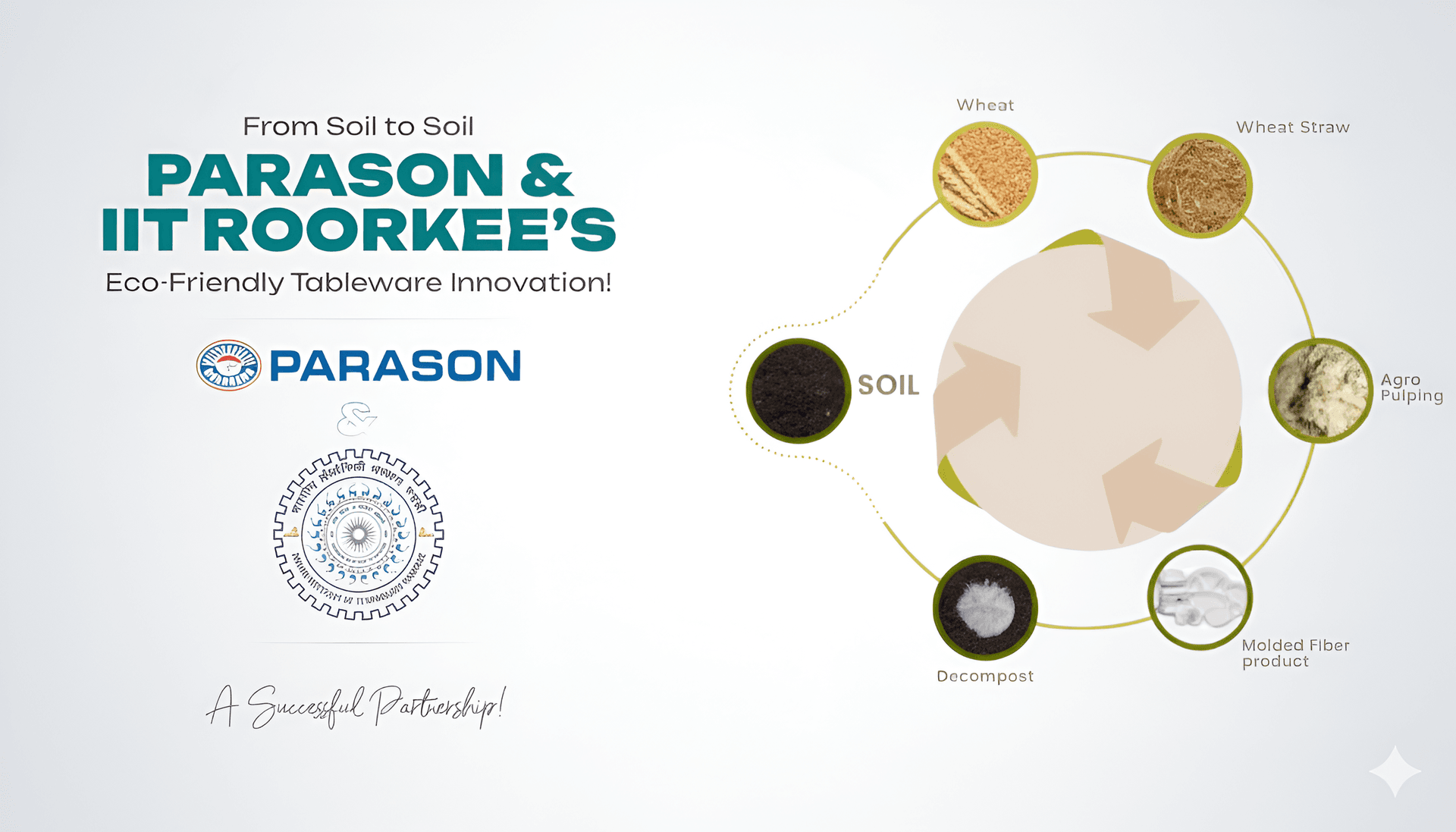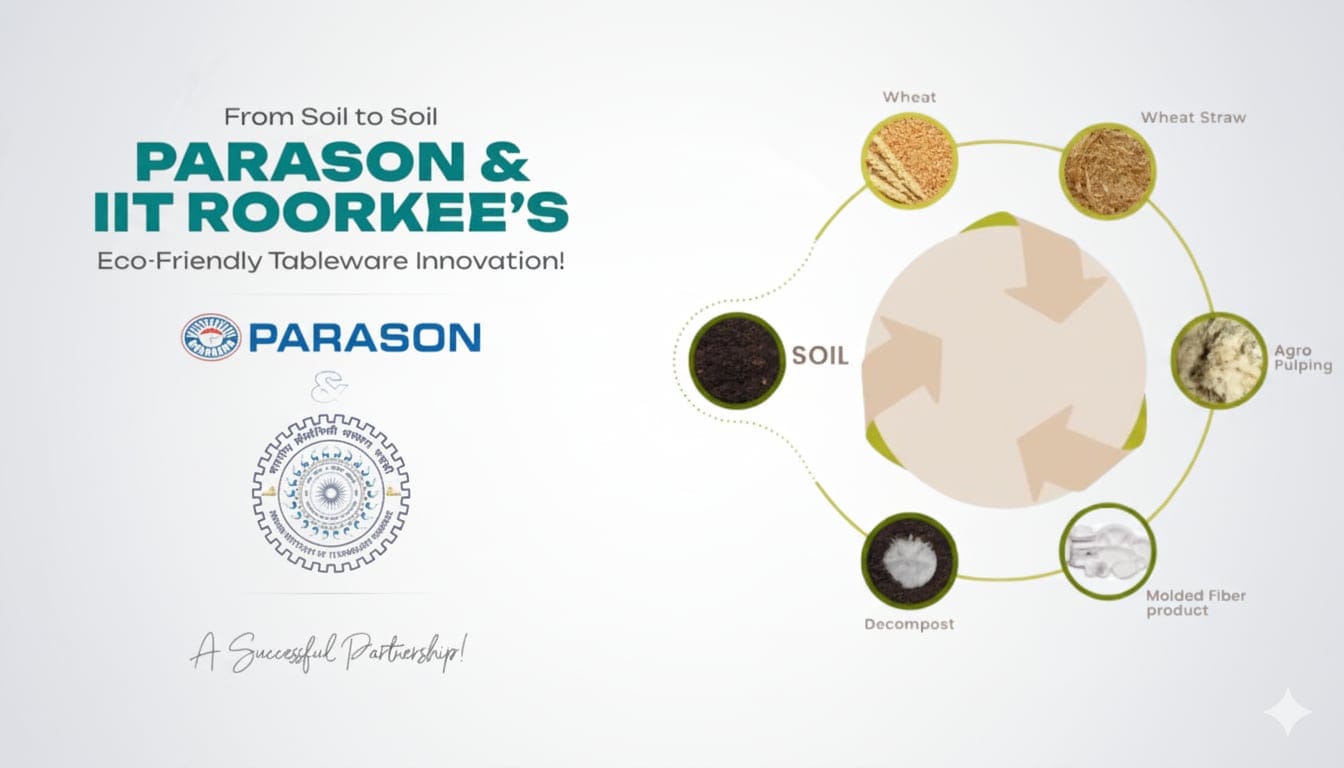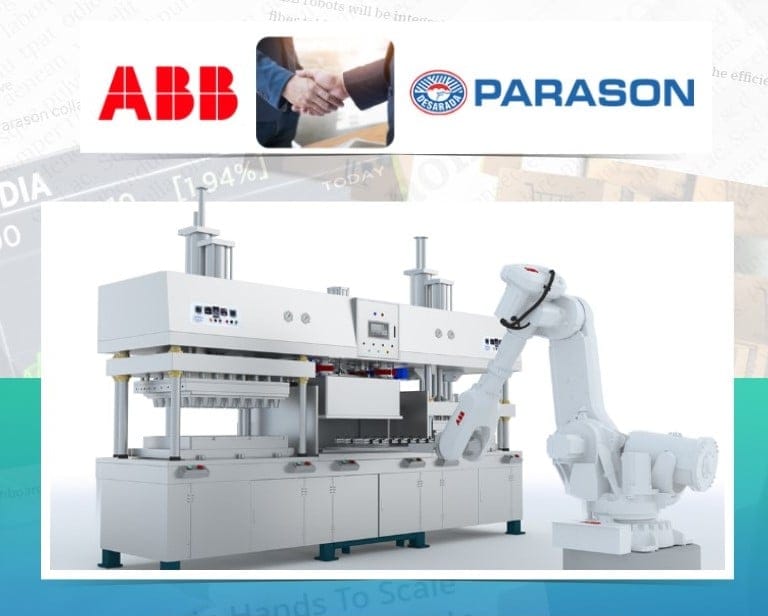
This joint innovation addresses two main challenges of our time:
- The rising menace of single-use plastic pollution.
- The widespread issue of stubble burning a major contributor to air pollution.
By transforming wheat straw- an agricultural residue often burned after harvest, into durable, heat-resistant, and food-safe molded tableware, Parason and IIT Roorkee have created a circular economy model that turns waste into wealth.
The farmers can benefit from an additional source of income while avoiding the excess of air pollution. This would give society a safe and sustainable alternative to plastics.
A Step Toward Sustainability
India produces over 350 million tonnes of agricultural waste every year. A large portion of this waste is either burned or left to decay. This results in air pollution, harming air quality and the environment.
With this innovation, Parason reinforces its commitment to building a greener, healthier future while supporting India’s national missions like Swachh Bharat, Atmanirbhar Bharat, and Make in India, as well as the United Nations Sustainable Development Goals (SDGs).
Industry–Academia Collaboration
This achievement is the result of extensive research conducted at IIT Roorkee’s INNOPAP Lab (Innovations in Paper and Packaging), combined with Parason’s cutting-edge engineering and manufacturing expertise.
Together, we have accelerated the lab-to-market transition of eco-friendly molded tableware, ensuring that sustainable solutions are not just developed but also delivered at scale.
Parason is proud to be at the forefront of this initiative, showcasing how industry and academia can come together to solve global challenges through innovation. We always innovate for the sustainability and greener tomorrow. And with this innovation and collaboration with IIT Roorkee, we have taken a step forward towards our goal of single-use plastic free future.

